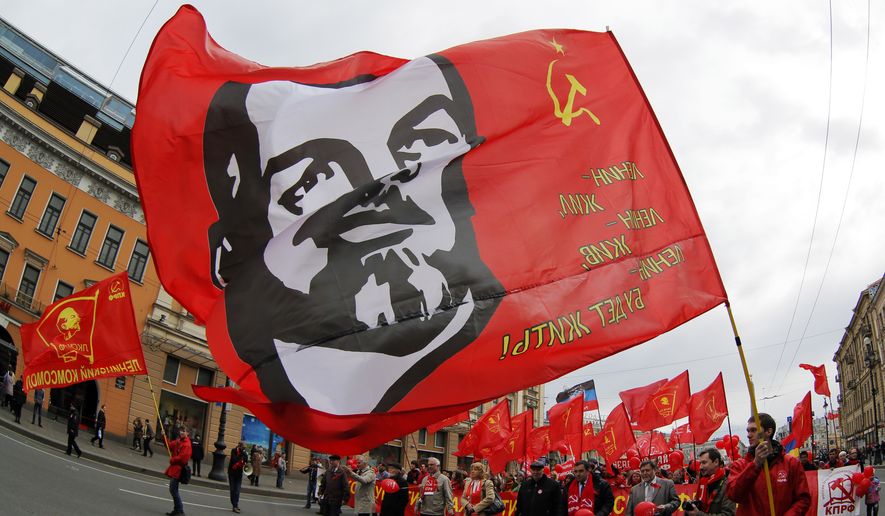Just in time for his 146th birthday this weekend, a majority of Russians in a new poll now say that Soviet dictator Vladimir Lenin played a largely positive role in the country’s history.
The Levada Center, an independent Moscow polling firm, found that 53 percent of the Russians it surveyed give a positive assessment of Lenin’s role in the Russian Revolution and his leadership in the early years of the Soviet Union, up from just 40 percent 10 years ago, according to a report by the Russian Interfax news agency. It’s the most positive assessment of Lenin since the question was first asked in 2006.
The 53 percent favorable rating puts Lenin on a par with current Prime Minister Dmitry Medvedev, but still far below President Vladimir Putin, who still polls at about 80 percent in popular opinion surveys.
Retirees, Russians over 55 and those living in cities and towns smaller than 100,000 people are the most favorably disposed to Lenin, with all three groups giving Lenin positive ratings of 62 percent or higher. His legacy polls less well with business executives (33 percent positive), those with college or advanced degrees (34 percent0, and residents of the capital, Moscow (22 percent).
“A probable reason for the rise in the positive attitude to Lenin is that central television channels have been providing less information about his ambivalent role in the life of Russia in recent years,” said the website Russia Beyond the Headlines, which wrote about the new Levada survey. Surveys have found that nearly a third of Russians under 30 could not give a substantive answer on Lenin’s role in the country’s history.
Mr. Putin famously once called the collapse of the Soviet Union the greatest “geopolitical catastrophe” for his country in the 20th century, and the new Levada poll finds that 56 percent of Russians agree, saying they wished the Soviet Union had not collapsed. That’s the highest level since 2010, but well below the peak of December 2000, just as Mr. Putin was beginning his first term in office, when 75 percent said they regretted the old empire’s collapse.
Despite his own popularity, Mr. Putin learned he had to tread warily in his own criticisms of Lenin. In January, he accused the Bolshevik leader of brutality for ordering the execution of the czar and his family and of placing a “time bomb” under the current Russian state by dividing ethnic groups into separate administrative zones.
He was forced to scale back his comments after protests from Russia’s Communist Party, which is still the second-largest party in the national parliament.
Mr. Putin has also resisted attempts to remove Lenin’s embalmed body from its place of honor in Red Square, saying it could “divide society.”
• David R. Sands can be reached at dsands@washingtontimes.com.




Please read our comment policy before commenting.